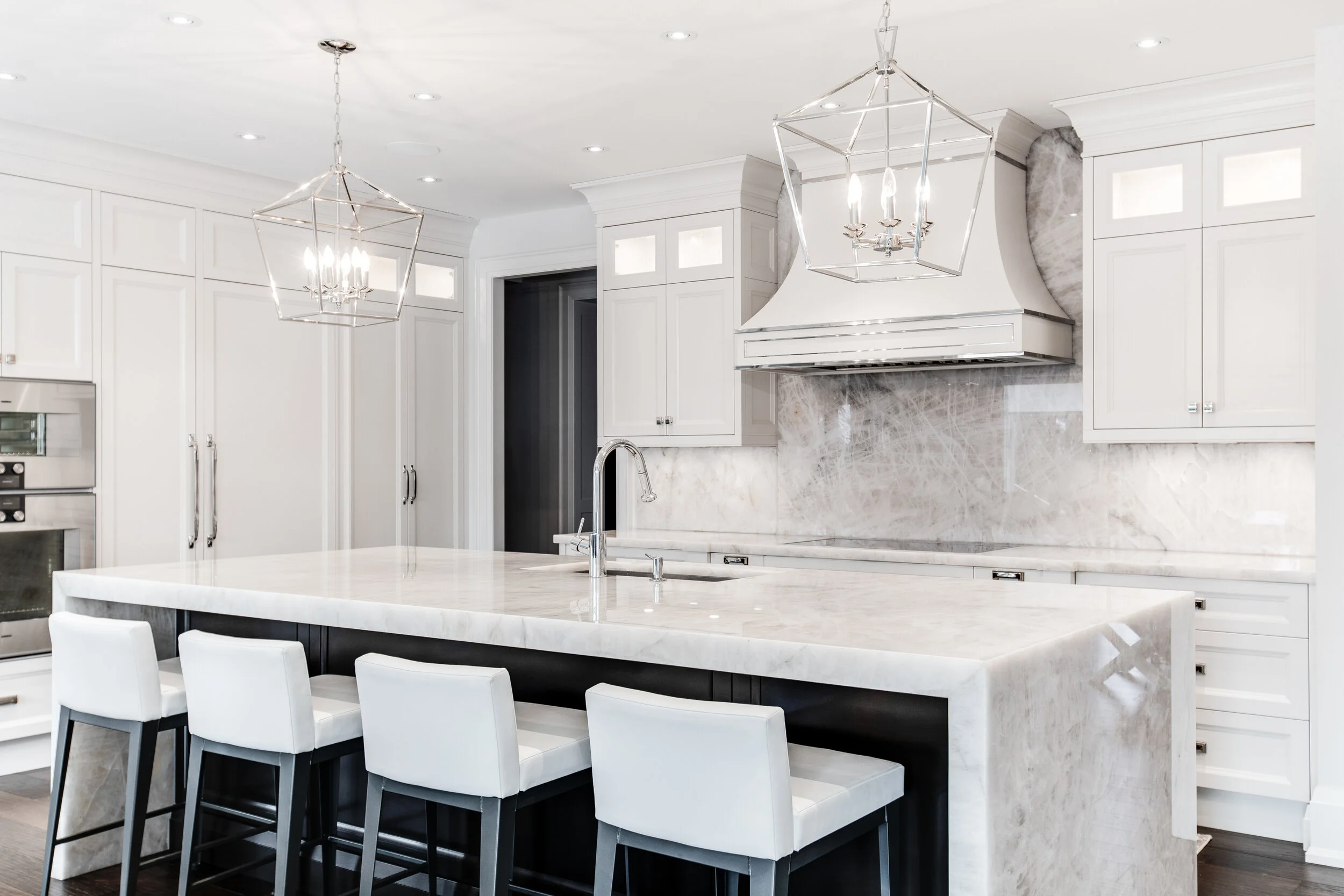Beginner's Guide to Engineered Quartz Countertops
Engineered stone is a fantastic material choice for countertops, especially for anyone who wants to be eco-friendly and balance durability with affordability. The engineered stone market is growing, with materials such as quartz increasing in popularity for use in kitchens, bathrooms, and other areas where countertops are required. Engineered stone countertops look beautiful, providing an equally smart aesthetic compared to natural stone. A huge range of colours and patterns is available, and engineered stone also offers a durable and extremely long-lasting option for countertops.
If you're curious about engineered stone countertops or you're considering engineered stone for your countertops, this guide will give you a brief overview of what engineered stone is and its benefits.
What Is Engineered Stone?
Engineered stone is the term used to describe stone products that are made from a composite of crushed stone and an adhesive, such as polymer resin. This method of creating stone products offers an affordable and eco-friendly way to build countertops and other structures. It allows the material to be shaped in multiple ways and any size that might be needed. Engineered stone offers an alternative to natural cut stone that can look as good and have some additional advantages compared to natural stone too. It's easily maintained, which is one of the main reasons that people choose it for their countertops.
What Type of Engineered Stone Is Available?
There are a few types of engineered stone, including quartz, polymer concrete, and engineered marble. Quartz is a very popular option for engineered stone countertops. It's made from crushed quartz crystals mixed with resin to create a material that looks like natural stone. Quartz is available in many different textures and colours, with colours ranging from black and white to brown and green. Take a look at our selection of quartz products to see shades such as the marbled grey and white Bianco Calacatta, and the grey-green Kensho.
Why Choose Engineered Stone Countertops?
There are many excellent reasons to choose engineered stone for your countertops, whether you want them for the kitchen, bathroom, laundry room, or anywhere else in your home. Engineered stone is durable, easy to maintain, affordable, and sustainable.
Durability
The durability of engineered stone is one of the key reasons to choose it for manufacturing countertops. It's very strong and also has excellent heat resistance, which makes it ideal for use as kitchen countertops.
Easy to Maintain
The ease of maintenance is another plus point for engineered stone countertops. The nonporous material means that it's easy to wipe up spills and prevent stains. This is in contrast to some natural cut stone, such as granite, which needs to be sealed to make it nonporous. Because it's so easy to care for, engineered stone countertops can have a long lifespan and look good for a long time too.
Range of Colours
Engineered stone such as quartz makes it possible to choose from a range of colours and patterns. You can find engineered stone that has been designed to look like natural stone, such as granite or marble. You can also find colours that you won't be able to choose from if you select other stone products. Engineered stone also makes it possible to ensure a lot more consistency in the colour and texture of your countertops. Natural cut stone simply comes as it is, cut in its natural shape and with all of its irregularities. However, quartz and other engineered stones can be manufactured to give a more consistent finish.
Although it's an engineered product, you can get a beautiful, natural look that's just as good as natural cut stone. You can even have a greater choice of colours to choose from to match your interiors.
Sustainability
Quartz and similar engineered stone products may seem like they would be less eco-friendly compared to natural stone due to being manufactured. However, the truth is that engineered stone is actually the more eco-friendly option. If you're looking for sustainable countertops for your kitchen, bathroom, or anywhere else in your home, engineered stone is the best choice. "Natural" is not necessarily best if your focus is on sustainability. The reason for this is that not all natural materials are equal. Some of them are abundant, whereas there are limited supplies of others. In addition, the processes for mining or creating different materials are different.
Natural cut stone such as marble or granite must be mined from non-renewable resources that take a long time to form. The process generally uses a lot of water and energy, and the locations of the quarries often mean that the material needs to be shipped from far away too. However, when it comes to engineered stone such as quartz, the material is readily available, manufacture is easily controlled, and improvements can be made in the way that they are manufactured to improve sustainability too.
Are There Any Downsides?
When deciding between engineered stone countertops and natural cut stone, it's important to know if there are any potential downsides to engineered stone. While it's heat-resistant, it's also necessary to remember that engineered stone might not react well to sudden heat due to the resin used to make it. Therefore, putting a hot pan down on the surface is usually not the smartest idea. Some people feel that the seams on engineered stone countertops are more noticeable too, or even that the uniform appearance looks a little unnatural.
Engineered stone countertops are an affordable and sustainable option for your countertops. They're perfect for kitchens, bathrooms, and more.
For more information or to get started on your next kitchen countertop remodel, contact the experts at Stoneworx® today.


